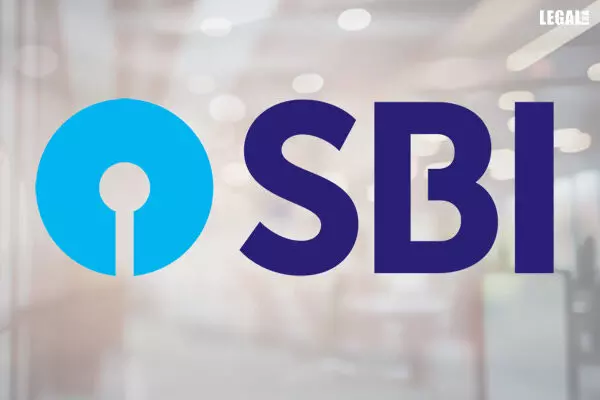- Home
- News
- Articles+
- Aerospace
- Artificial Intelligence
- Agriculture
- Alternate Dispute Resolution
- Arbitration & Mediation
- Banking and Finance
- Bankruptcy
- Book Review
- Bribery & Corruption
- Commercial Litigation
- Competition Law
- Conference Reports
- Consumer Products
- Contract
- Corporate Governance
- Corporate Law
- Covid-19
- Cryptocurrency
- Cybersecurity
- Data Protection
- Defence
- Digital Economy
- E-commerce
- Employment Law
- Energy and Natural Resources
- Entertainment and Sports Law
- Environmental Law
- Environmental, Social, and Governance
- Foreign Direct Investment
- Food and Beverage
- Gaming
- Health Care
- IBC Diaries
- In Focus
- Inclusion & Diversity
- Insurance Law
- Intellectual Property
- International Law
- IP & Tech Era
- Know the Law
- Labour Laws
- Law & Policy and Regulation
- Litigation
- Litigation Funding
- Manufacturing
- Mergers & Acquisitions
- NFTs
- Privacy
- Private Equity
- Project Finance
- Real Estate
- Risk and Compliance
- Student Corner
- Take On Board
- Tax
- Technology Media and Telecom
- Tributes
- Viewpoint
- Zoom In
- Law Firms
- In-House
- Rankings
- E-Magazine
- Legal Era TV
- Events
- Middle East
- Africa
- News
- Articles
- Aerospace
- Artificial Intelligence
- Agriculture
- Alternate Dispute Resolution
- Arbitration & Mediation
- Banking and Finance
- Bankruptcy
- Book Review
- Bribery & Corruption
- Commercial Litigation
- Competition Law
- Conference Reports
- Consumer Products
- Contract
- Corporate Governance
- Corporate Law
- Covid-19
- Cryptocurrency
- Cybersecurity
- Data Protection
- Defence
- Digital Economy
- E-commerce
- Employment Law
- Energy and Natural Resources
- Entertainment and Sports Law
- Environmental Law
- Environmental, Social, and Governance
- Foreign Direct Investment
- Food and Beverage
- Gaming
- Health Care
- IBC Diaries
- In Focus
- Inclusion & Diversity
- Insurance Law
- Intellectual Property
- International Law
- IP & Tech Era
- Know the Law
- Labour Laws
- Law & Policy and Regulation
- Litigation
- Litigation Funding
- Manufacturing
- Mergers & Acquisitions
- NFTs
- Privacy
- Private Equity
- Project Finance
- Real Estate
- Risk and Compliance
- Student Corner
- Take On Board
- Tax
- Technology Media and Telecom
- Tributes
- Viewpoint
- Zoom In
- Law Firms
- In-House
- Rankings
- E-Magazine
- Legal Era TV
- Events
- Middle East
- Africa
SBI Held Liable for Unauthorized Transactions: District Commission Orders Compensation

SBI Held Liable for Unauthorized Transactions: District Commission Orders Compensation
The District Consumer Disputes Redressal Commission in Panchkula, with a bench comprising Satpal (President), Dr. Sushma Garg and Dr. Barhm Parkash Yadav, both Members, held the State Bank of India (SBI) accountable for deficiency in services. The bank’s failure to ensure the safety and security of electronic banking transactions resulted in unauthorised withdrawals totalling ₹64,999 from the complainant’s bank account. As a remedy, the bench directed SBI to reimburse the complainant the full amount of ₹64,999 and further compensate him with ₹10,000. Additionally, SBI was ordered to cover litigation costs amounting to ₹5,500.
Tarsem Kumar Mahajan (the complainant) maintained a savings account with SBI, which issued him a debit classic card allowing a maximum daily withdrawal of ₹20,000. On August 3, 2021, the complainant received a KYC-update message and clicked the provided link. Subsequently, his mobile malfunctioned, and upon restarting, he discovered three unauthorised transactions totalling ₹64,999 from his bank account. The complainant promptly reported the incident to SBI, filed a police complaint, and sought action against the fraudster.
The unauthorised withdrawals were facilitated by a failure in SBI’s online software system, resulting in a significant financial loss to the complainant. Despite numerous complaints, SBI failed to address the issue adequately. Feeling aggrieved, the complainant approached the District Consumer Disputes Redressal Commission in Panchkula, Haryana, and filed a consumer complaint against SBI.
In response, SBI argued that the complainant was estopped from filing the complaint due to his actions and omissions. The bank claimed that an FIR (First Information Report) was lodged against unknown persons, but the complainant failed to disclose its status to the District Commission. SBI asserted that the fraud resulted from the complainant’s conduct and further argued that the bank never solicited KYC updates through messages, and the complainant’s actions led to unauthorised transactions. However, the Commission ruled in favour of the complainant, highlighting SBI’s responsibility to safeguard electronic transactions and provide effective customer service.



